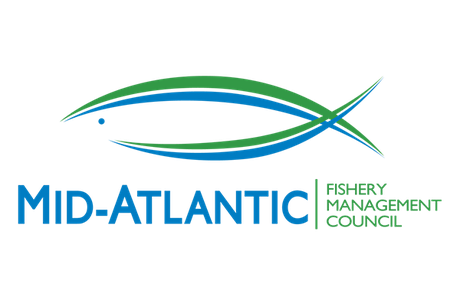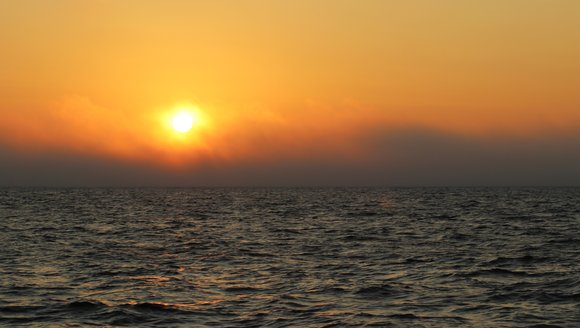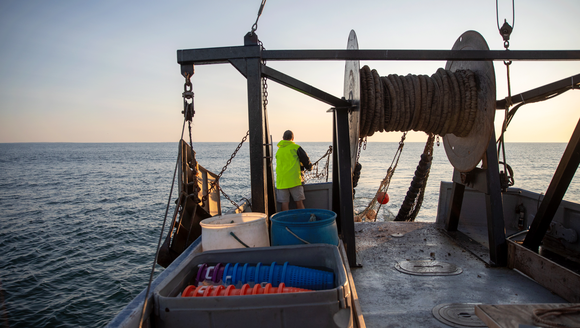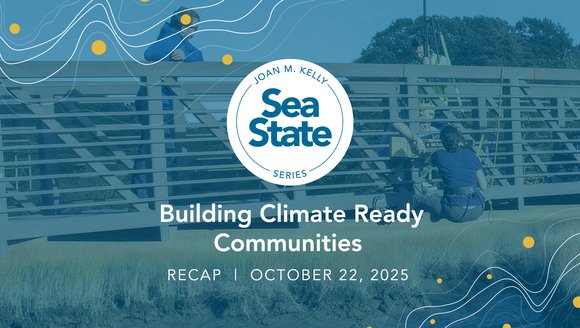Evaluating the Importance of Chub Mackerel in the Diet of Highly Migratory Species
Collecting data to help balance fishery and ecosystem needs.
One of the challenges with fisheries management is balancing the needs of the fishery with those of the ecosystem. That is, knowing how much of the resource to harvest for human use and how much to leave in the ocean to fulfill ecosystem needs. In order to begin this process, it’s important to document what species are being consumed by apex predators and in what quantities. Our project seeks to investigate the foraging ecology of marlins (blue, white, round-scale spearfish) and tunas (bigeye, yellowfin) along the East Coast to identify the most important components of their forage base, with a strong focus on chub mackerel.
Research Goals:
- Collect biological tissues primarily from the stomachs of marlins and tunas off the east coast of the US.
- Quantify the species composition of stomachs using visual observation, stable isotopes, and genetic barcoding.
- Provide information that can be used to improve the management of both fisheries and ecosystems alike.
Apex predators like tunas, sharks, and marlins are some of the most charismatic species in the ocean. They can grow to impressive sizes, travel thousands of miles on annual migrations, and are sought after by commercial and recreational fishermen. As apex predators, they also serve to balance and stabilize marine food webs. Migrations tend to follow favorable water masses that aggregate prey in sufficient quantities to support metabolic demands. Often, abundant prey sources like Atlantic herring, mackerel, and menhaden are themselves the target of commercial fisheries.
Identifying what these top predators eat is important if their primary prey is also the target of commercial fisheries, as fisheries managers need to make sure enough of the forage resource is left in the water to support ecosystem needs. Examining important prey items also helps us understand marine food webs and how animals might respond to changes in ocean conditions. Understanding foraging ecology can also help us interpret changes in the distribution of top predators and explain changes in catch per unit effort indices, one of the metrics fisheries scientists use to evaluate the status of the stocks.
For this project, we are evaluating the foraging ecology of marlins and two species of tuna to check for the presence of chub mackerel — an abundant, small pelagic species located along the East Coast. To quantify the stomach contents of these species, we collect stomachs from recreational and commercial fishermen who land these fish. Specimens come from offshore waters between the Hudson and Wilmington Canyons. The marlin and tunas are identified to the species level, and their stomachs are removed. In the lab, we dissect the stomachs and organize the contents. Any species with recognizable morphological characteristics are identified to the lowest taxonomic group. If no visual characteristics remain due to advanced digestion, we remove otoliths and beaks from any teleosts and cephalopods, respectively, as we can use these structures to identify prey samples down to the species level. If no otoliths or squid beaks remain intact, small aliquots of tissue are saved and sent off for genetic barcoding. This is a powerful technique that can identify prey species without physical features. In many highly migratory species, digestion takes place very rapidly and genetic barcoding is becoming the most effective way to identify prey that at times is nothing more than a pile of unrecognizable tissue.
Project Team
-
![]()
Walt Golet
Assistant Professor, UMaine School of Marine Sciences
-
![This is the staff photo for lisa kerr]()
Lisa Kerr, Ph.D.
Associate Professor, UMaine School of Marine Sciences
-

John Logan, Ph.D.
Massachusetts Division of Marine Fisheries
-

Joe Quattro, Ph.D.
University of South Carolina, Columbia
Read Next
-
The Next Wave of Maine’s Blue Economy
Reflections from the 2025 Blue Economy Investment Summit, and the future of Maine's blue economy.
Perspectives
-
Demystifying the Blue Economy
The blue economy is a hot topic these days, but the meaning behind the term isn't always clear. In this blog, we break down what …
Perspectives
-
Fisheries 101
Fisheries are the backbone of our state's economy and cultural heritage, but these systems are complex, and managing them even more so. Read on for …
Perspectives
-
Sea State Recap: Building Climate Ready Communities
In this installment of the Sea State series at the Gulf of Maine Research Institute (GMRI), we hosted a timely conversation around supporting Maine communities …
Perspectives




